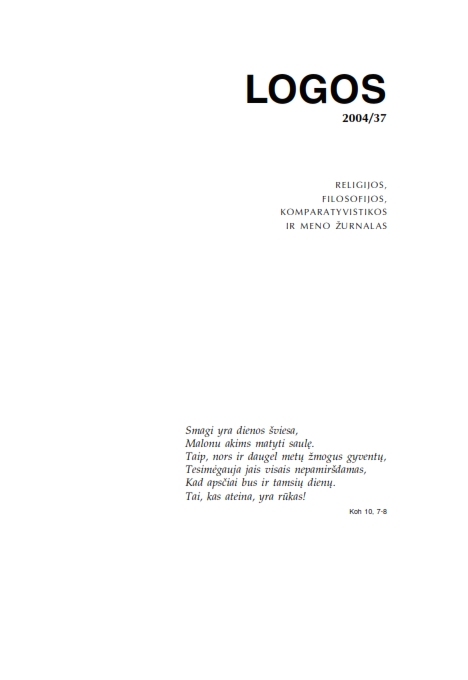Žodžio samprata viduramžių filosofijoje
The Concept of the Word in Medieval Philosophy
Author(s): Dalius JonkusSubject(s): Historical Linguistics, Philosophy of Middle Ages, Philosophy of Language, Rhetoric
Published by: Visuomeninė organizacija »LOGOS«
Keywords: Abélard; Augustine; Anselm; Thomas Aquinas; rhetorical word; grammatical word;
Summary/Abstract: This article observes some aspects that show a change in the concept of the word in medieval philosophy. In contemporary thinking the word has lost its sacral and ethical meaning. Often a word is understood as a sign, as a means of transmission of communication or information; whereas for medieval philosophers and theologians a word was a key, empowering the openness of the mystery of being. One can see the change in the concept of the word in the development of medieval thinking, which has unfolded in words and language a subtlety of being. From the rhetorical word (Augustine) through the grammatical word (Anselm) and the dialectical word (Abélard) the concept of the word changed to the logical word (Thomas Aquinas). The logical word does not urge and does not piously thank, but proves.
Journal: LOGOS - A Journal of Religion, Philosophy, Comparative Cultural Studies and Art
- Issue Year: 2004
- Issue No: 37
- Page Range: 102-109
- Page Count: 8
- Language: Lithuanian

